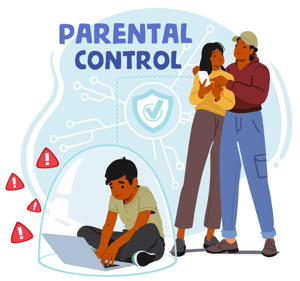Who is an Online Coding Instructor?
“An online coding instructor at CodaKid is a skilled educator selected for their ability to teach computer programming effectively through an online platform. These instructors are often drawn from prestigious universities, such as Harvard, MIT, and Dartmouth, ensuring they bring a wealth of knowledge and expertise to their teaching roles. They specialize in making coding accessible and engaging for children and teenagers, offering personalized support and guidance through CodaKid’s structured, multi-year computer science curriculum. This approach is designed to prepare students for the future by teaching them real programming languages and tools used in the tech industry today. For more details, please visit CodaKid’s website.” – David Dodge, CEO
Highly sought-after individuals in today’s workforce are those skilled in programming. Seasoned professionals with honed expertise command impressive salaries and possess the flexibility to work globally. With IT companies prioritizing top-notch working environments, there’s a burgeoning interest among younger and older generations to delve into programming.
Mastering fundamental knowledge is pivotal to becoming a proficient programmer. A mentor serves as a crucial guide in this journey, steering your learning path and acquainting you with the latest advancements in the ever-evolving IT landscape.
Table of Contents
Learning to Code with a Mentor
For a novice student venturing into programming, it’s crucial to explore various facets of the field and understand the distinctions between Front-end and Back-end Development. This initial phase involves acquiring foundational knowledge and determining one’s future career trajectory.
Navigating this journey independently can be challenging. A tutor offers structured guidance, presenting comprehensive information to facilitate analysis and decision-making regarding potential career paths, such as:
- Mobile Application Developer
- Web Developer
- Front-end Developer
- Back-end Developer
- DevOps Engineer
- Data Scientist
In instances where a student struggles to make a decision, the educator assesses their strengths and recommends a direction that aligns with their abilities and aspirations.
Once a student possesses some programming proficiency, it becomes essential to organize and reinforce this knowledge through practical application. In such instances, a tutor engages in discussions with the student regarding their future objectives and tailors a learning plan accordingly.
In the realm of employment, the presence of a portfolio showcasing a person’s projects developed during their learning journey or freelance endeavors holds significant importance. A tutor aids in materializing the student’s intriguing ideas, verifies code accuracy, and imparts invaluable insights not typically found in textbooks.
While programming literature provides a foundational understanding of the field, practical wisdom often needs to be more abundant and updated within its pages. Given the dynamic nature of the IT industry, only practitioners immersed in the field and avidly consuming international resources stay abreast of the latest innovations.
Tutors predominantly hail from IT companies, dedicating their spare time to educating prospective colleagues.
In summary, here are the benefits of studying programming with a tutor:
- Methodical exploration of key theoretical concepts, with thorough clarification of crucial aspects tailored to the student’s understanding.
- Guidance in selecting a career path.
- Hands-on practice to develop essential professional skills.
- Crafting a portfolio to enhance employment prospects.
- Access to valuable insights from an active IT professional.
What are the Reasons for Teaching Children Programming?
Indeed, the rationale behind teaching children programming is extensive. It goes beyond mere exposure to new technologies; it fosters comprehension and practical applications tailored to their requirements. Yet, this is merely a fraction of the advantages.
Teaching programming to children is emerging as a global trend, gaining significant momentum. The successes observed in various countries demonstrate the effectiveness of introducing coding principles and programming languages to even very young learners. In Ukraine, numerous foundations and businesses are offering specialized programming courses tailored for children. It’s important to note that such initiatives aimed at promoting coding skills aren’t solely intended to cultivate a future workforce of programmers.
Numerous compelling reasons advocate for integrating programming into children’s education. Below are a few noteworthy arguments in favor of this approach.
If you don’t have enough skills or are limited on time, but feel that your child should learn programming, take advantage of programming courses for kids.
Learning programming instills logical thinking skills
There’s a common adage that suggests it’s never too late to learn, but contemporary wisdom tells us it’s never too early either. Even children as young as four years old can effectively grasp the fundamentals of programming. Surprisingly, younger children tend to absorb new knowledge at a swifter pace.
Naturally, teaching approaches and resources must be tailored to suit the child’s age. One of the primary advantages of learning to code is the development of logical thinking abilities. Programming entails various cognitive processes, including analysis. It extends beyond merely writing instructions and functions; it involves contemplating multiple facets and anticipating outcomes when implementing specific solutions.
Programming supports creation
Throughout the learning process, children are exposed to these concepts, fostering skills in analyzing various courses of action and drawing conclusions based on different conditions. In essence, programming cultivates critical thinking.
Programming fosters creativity by nurturing problem-solving skills. Children discover that there are multiple approaches to tackling a programming challenge or task, encouraging them to explore inventive avenues that lead to a solution. As they engage in this process, they derive enjoyment from their experimentation.
It’s important to recognize that programming mirrors the act of creation, akin to constructing a new edifice using the individual elements of program code specific to chosen programming languages. This parallels the experience of building objects with blocks, a favorite pastime for many children.
Moreover, programming serves as a platform for honing problem-solving abilities, a fundamental skill applicable across various aspects of life. It offers an ideal avenue for developing such skills, particularly for youngsters. Children acquire commands that enable them to achieve specific objectives, while also learning how to break down complex problems into simpler components that are more manageable and thus easier to solve.
Through programming, children not only learn how to identify and solve problems but also cultivate a propensity for seeking superior and more efficient solutions.
Perhaps soon every one of our children will be learning the secrets of programming just like a foreign language or math.
Programming serves as a gateway to the realm of technology, enabling individuals to navigate the ever-expanding digital landscape. Computers and modern digital technologies are omnipresent, permeating various aspects of contemporary life, a trend that will persist in the foreseeable future. It’s essential for individuals to adeptly maneuver through this technologically driven world, and the sooner they acquire these skills, the better.
Mastering programming empowers children to transition from passive consumers of digital tools to informed users. Delving into the intricacies of programming not only fosters an understanding of new technologies but also unveils their potential applications and possibilities.
Acquiring programming skills early on is an investment in a child’s future career prospects
Teaching programming holds promise as an investment in a child’s future career prospects. While not every child who learns to code is expected to pursue a career in programming, for many, it serves as a form of play and development support.
Nevertheless, a considerable number of these children may develop a genuine passion for programming, leading them to explore career opportunities in the field. It’s worth noting that nearly all highly developed nations face a shortage of skilled programmers, with Ukraine being no exception.
Introducing children to programming represents an investment in their professional journey and presents an opportunity to cultivate new talent for the IT industry. As programming increasingly emerges as the “language of the future,” coding skills are poised to become highly sought-after by employers. Recognizing this trend, more countries are incorporating programming lessons into their school curricula.
What programming languages are available for children to learn?

Here’s a rundown of popular programming languages suitable for kids, with their popularity, language, and a brief description:
| Language | Popularity | Description |
| Scratch | Very High | A visual programming language designed to introduce coding logic to beginners through interactive stories, games, and animations. |
| Python | High | Known for its readability, Python is a versatile language used in web development, data science, and creating software applications. |
| JavaScript | Moderate | Essential for web development, JavaScript enables interactive web pages and is a stepping stone to advanced web design and development. |
| HTML/CSS | Moderate | Not programming languages per se but markup and styling languages crucial for web design, teaching the basics of website structure and design. |
| Java | Moderate | Used in Android app development and large systems, offering a strong foundation in object-oriented programming concepts. |
These languages are selected based on their educational value, ease of learning for beginners, and relevance to developing real-world projects and skills.
What is a coding instructor?
A coding instructor is a professional responsible for teaching and guiding students in the study of computer programming, software development, and related technological fields. These instructors can work across various educational settings, including schools, universities, coding boot camps, online platforms, and corporate training environments. Their primary role involves not just the imparting of technical knowledge, such as programming languages (e.g., Python, Java, JavaScript), software development practices, and computer science fundamentals, but also the development of problem-solving skills, logical thinking, and a deep understanding of technology’s impact on society.

Coding instructors employ a variety of teaching methods to accommodate different learning styles and to ensure that students can apply theoretical knowledge in practical situations. This can include lectures, hands-on projects, group work, one-on-one mentoring, and code reviews. They also stay updated with the rapidly evolving technology landscape to incorporate the latest programming trends, tools, and best practices into their curriculum. The goal is to prepare students not just for academic assessments but for real-world challenges they will face in the tech industry.
Moreover, coding instructors play a crucial role in fostering an environment that encourages curiosity, innovation, and continuous learning. They often act as mentors, providing guidance and support as students navigate their educational journey and make career decisions. In doing so, they contribute significantly to the development of the next generation of tech professionals, ensuring they are well-equipped with the necessary skills and knowledge to thrive in a digital world. The demand for coding instructors has grown considerably in recent years, reflecting the increasing importance of technology in every aspect of life and the global push toward digital literacy.
Useful articles:
How to choose an online coding tutor for a child?
Choosing an online coding tutor for a child is a critical decision that can significantly influence their interest and proficiency in technology and computer science. As coding becomes an essential skill in the digital age, finding the right tutor can set a solid foundation for your child’s future learning and career opportunities. Here’s a comprehensive guide on how to select an online coding tutor that aligns with your child’s needs and aspirations.
Understand Your Child’s Learning Goals and Interests
Before beginning your search, it’s important to understand your child’s learning objectives. Are they interested in creating websites, developing video games, learning a specific programming language, or exploring robotics? Identifying their interests will help you choose a tutor who specializes in those areas. Additionally, consider your child’s learning style and preferences. Some children might thrive with a structured, curriculum-based approach, while others might prefer a more project-based, exploratory learning method.
Research and Evaluate Tutor Qualifications

Look for tutors who not only have strong technical skills and knowledge in coding but also possess teaching experience, especially with children. A tutor with a background in computer science education or someone who has professionally worked in the tech industry can offer valuable insights and real-world applications of coding concepts. Verify their qualifications by reviewing their educational background, certifications, and professional experiences.
Check Teaching Methodology and Curriculum
A good online coding tutor should employ teaching methods that are engaging, interactive, and tailored to the child’s age and skill level. Inquire about the tutor’s approach to teaching coding to young learners. Do they use gamification, live coding sessions, project-based assignments, or a mix of these methods? Additionally, examine the curriculum they plan to use. It should be comprehensive, covering fundamental programming concepts, logic building, and problem-solving skills, while also being flexible enough to adapt to your child’s pace and interests.
Consider Communication Skills and Personality Fit
Effective communication is key to successful online tutoring. The tutor should be able to explain complex coding concepts clearly and understandably that resonate with young learners. Moreover, their personality and teaching style should be a good fit for your child. A tutor who is patient, encouraging, and enthusiastic about coding can inspire and motivate your child to learn and explore more. It might be beneficial to arrange a trial lesson or a meet-and-greet session to assess the tutor’s compatibility with your child.
Review Feedback and References
Look for reviews, testimonials, or references from other parents and students. Feedback from those who have previously engaged with the tutor can provide insights into their teaching effectiveness, reliability, and the overall learning experience they offer. Online platforms and tutoring services often feature ratings and reviews that can help you make an informed decision.
Evaluate Technical Setup and Support
Ensure that the tutor and the tutoring platform they use are equipped with the necessary technical tools and software for effective online learning. This includes a stable internet connection, a good quality webcam and microphone, interactive coding platforms, and any additional software or tools required for the courses. The tutor should also be able to provide technical support in setting up and troubleshooting any issues that may arise during the lessons.
Consider Pricing and Flexibility
Finally, consider the cost of tutoring and whether it fits within your budget. Online coding tutors can vary significantly in pricing, depending on their experience, qualifications, and the depth of the curriculum offered. Additionally, look for tutors who offer flexible scheduling options that can accommodate your child’s and your family’s routine.
Choosing the right online coding tutor for your child involves a combination of understanding your child’s interests and learning style, researching the tutor’s qualifications and teaching approach, and ensuring a good personality fit. By taking these factors into account, you can find a tutor who not only teaches coding skills but also ignites a passion for technology and learning in your child.
Conclusion
The role of an internet-based coding educator, especially within platforms like CodaKid, is to facilitate, inspire, and guide young learners through the intricacies of programming and digital creation. These educators leverage the internet to deliver interactive and engaging content that introduces children to the fundamentals of coding, including languages like Python, Java, and Scratch, as well as concepts in game design, app development, and web creation. Their responsibilities extend beyond mere instruction; they include curriculum development tailored to online learning environments, fostering a supportive community that encourages experimentation and problem-solving, and adapting teaching strategies to cater to a diverse range of learning styles and needs. Through personalized feedback and real-time interaction, internet-based coding educators empower students to become not just consumers but creators in the digital world, equipping them with critical thinking skills, creativity, and a foundational understanding of computational logic that will serve them in a technology-driven future.


















